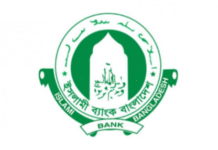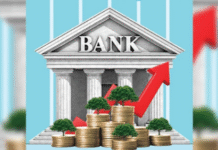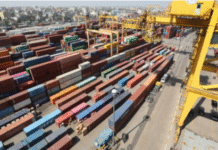Generating adequate funds for implementing the Sustainable Development Goals (SDGs) will be a major challenge for Bangladesh as it may require around $ 928.48 billion worth of additional resources for implementing the 2030 development agenda.
This was revealed in a recent report of the General Economics Division (GED) of the Planning Commission titled ‘SDGs Needs Assessment and Financing Strategy: Bangladesh Perspective’.
The report says the government is focusing more on local resources than the foreign ones to mobilise the funds needed to meet 17 of the 2030 the goals.
Out of the estimated funding, the government is seeking to mobilise some $ 796.9 billion from local sources while $ 132.39 billion from foreign sources.
Until 2030, the country has to mobilise $56.86 billion on average from local resources every year, apart from $9.46 billion from foreign funds, according to the report.
The estimated money for the SDGs will be spent during implementation of the 7th, 8th and 9th five-year plans, said an official at the GED.
The report has identified three steps as financing strategy up to 2030, which shows that more money will be required gradually in the later years than the requirement of the initial years.
Bangladesh will need $129.79 billion from fiscal year 2016-17 to 2019-20 where the contribution from foreign funds has been estimated at only $22.7 billion.
But, from FY21 to FY25, the government has to spend $300.65 billion on SDGs, including $257.49 billion from local sources and $43.15 billion from foreign sources.
The requirement of funding will then increase to $498.4 billion during FY26 to FY30, where local fund requirement has been estimated at $430.87 billion while that of overseas funds at $67.17 billion.
As per the foreign funds mobilisation strategy, the report proposed collecting $6.91 billion every year as FDI and $2.55 as project loans and grants from development partners.
For the first four years, the FDI inflow has been estimated at $2.73 billion on average a year and $6.45 billion for the next four years and $10.70 billion for the last four years on average a year.
Talking to UNB, a GED official said the main challenges before the country in implementing the SDGs are resource mobilisation, stakeholders’ engagement, data availability and management and localisation of SDGs.
The official said traditional sources of funding are inadequate to implement the SDGs. “We need to find innovative ways of financing from both the public and private sectors, development partners, and ensure effective and efficient ways for utilisation.”
According to a latest SDG Index prepared by the United Nations Sustainable Development Solutions Network, Bangladesh ranked 120th among 157 countries in progress report on the UN-designated universal development model of SDGs.
The country is notably in the ‘Red’ category on 10 out of the total 17 SDG goals, the report found, implying that major challenges remain in making progress on most of the goals coming under the UN global agenda 2030.
Two years after the SDG flagship was officially launched by the UN, Bangladesh has attained a score of 56.2 in terms of achieving the 17 goals-significantly lower than the regional average of 63.3.
Bangladesh’s SDG score is also lower than most of its regional peers, including India, Bhutan, Nepal and Sri Lanka. Only Pakistan and Afghanistan have fallen below Bangladesh standing on SDG Index.
Last year, the country ranked 118th out of 149 countries in the same index with a score of 44.4. This implies that although Bangladesh’s SDG score has improved over the time.
After the phase out of Millennium Development Goals (MDGs) in 2015, the UN picked up SDGs to make the world free of hunger, poverty and inequality by 2030.
The SDGs have 17 goals, 169 targets and 230 evaluation indicators.
The 17 SDGs include: ending poverty, ending hunger, ensuring health and well-being, ensuring inclusive and equitable education for all ages, achieving gender equity, ensuring clean water and sanitation, clean energy, decent work and economic growth, combating climate change and promoting peace, justice and strong institutions.
Source: Prothom Alo









